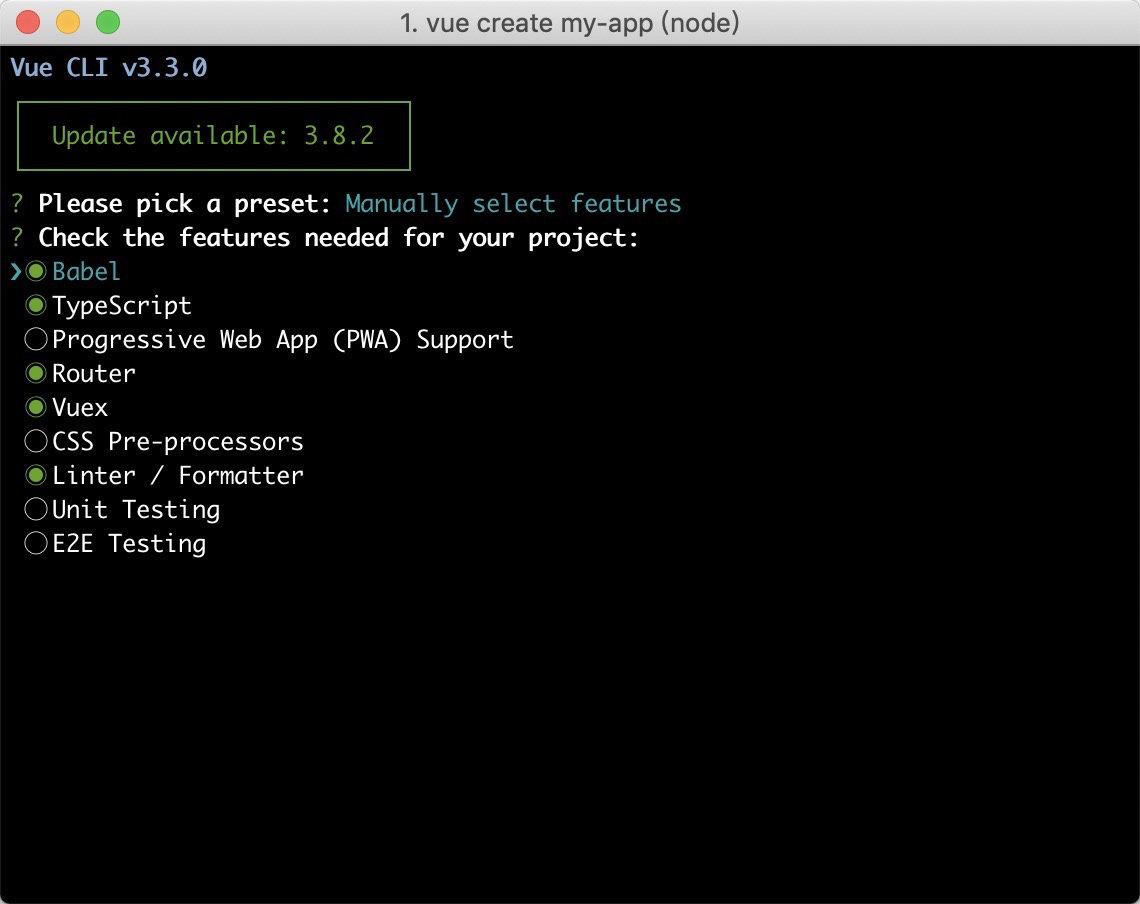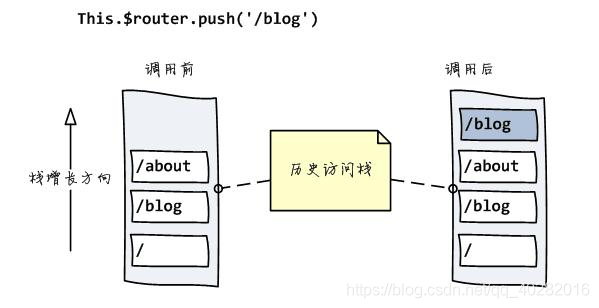最近翻阅了一下vue。发觉有一个单文件组件之前基本忽视掉了。vue.js中的单文件组件允许在一个文件中定义一个组件的所有内容。也就是说,一个页面或者是一个组件,我们想将他们捆绑在一起,那么vue的这个单文件组件可以做到。正如vue的官网说的,“在很多 Vue 项目中,我们使用 app.component 来定义全局组件,紧接着用 app.mount(‘#app’) 在每个页面内指定一个容器元素。”这里的组件,都是相对简单的,而面对一个比较复杂的项目,这种方式就行不通。原因如下:
- 全局定义 (Global definitions) 强制要求每个 component 中的命名不得重复;
- 字符串模板 (String templates) 缺乏语法高亮,在 HTML 有多行的时候,需要用到丑陋的 \;
- 不支持 CSS (No CSS support) 意味着当 HTML 和 JavaScript 组件化时,CSS 明显被遗漏;
- 没有构建步骤 (No build step) 限制只能使用 HTML 和 ES5 JavaScript,而不能使用预处理器,如 Pug
- (曾经的 Jade) 和 Babel。
所有这些都可以通过扩展名为 .vue 的 single-file components (单文件组件) 来解决,并且还可以使用 webpack 或 Browserify 等构建工具。
那么vue项目中的单文件组件需要如何创建呢?
构建
npm install -D @vue/compiler-sfc
在控制台上输入上述的代码,然后就会出现一个文件夹和另一个json文件。如下:

我们要构建单文件组件,就要自个制定文件。同时对webpack也要有一定的了解才行。
比如说,我们自己安装一些需要的依赖。比如说,css-loader、css的预编译处理器等等。因为需要项目对vue文件进行解析,那么vue-loader是必须的。
这些文件其实都是vue的简单版本。比如简单版的hello.vue文件,可以如下
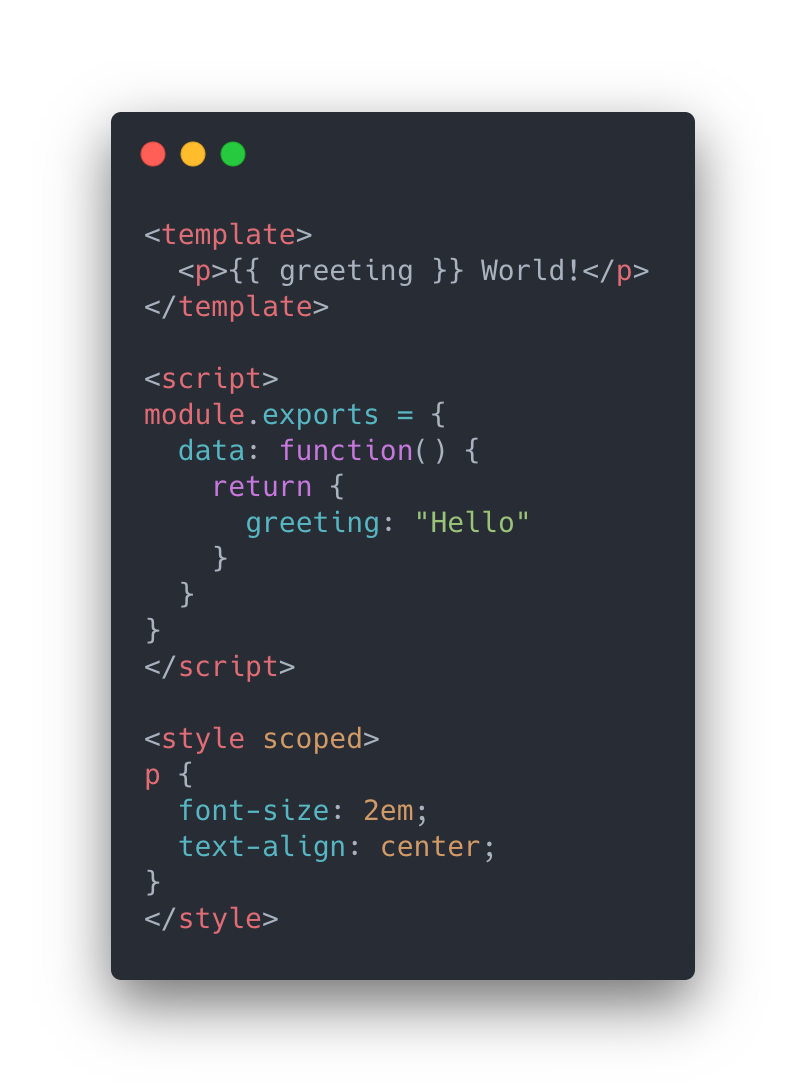
由此可以看见: 三个部分组成。而template这个部分是不可缺少的,其它的两个部分,style和script还可以忽略掉。
script让你的页面js可以跟vue完美结合,而style可以使用预处理器来构建简洁和功能更丰富的组件。(这个单文件组件很像最初前端开发中的html文档,它有自己的style标签和script标签,只是表现层使用一个template标签。由于使用了简单的方式,得到一个强大的分层组件(内容/模板:,表现:
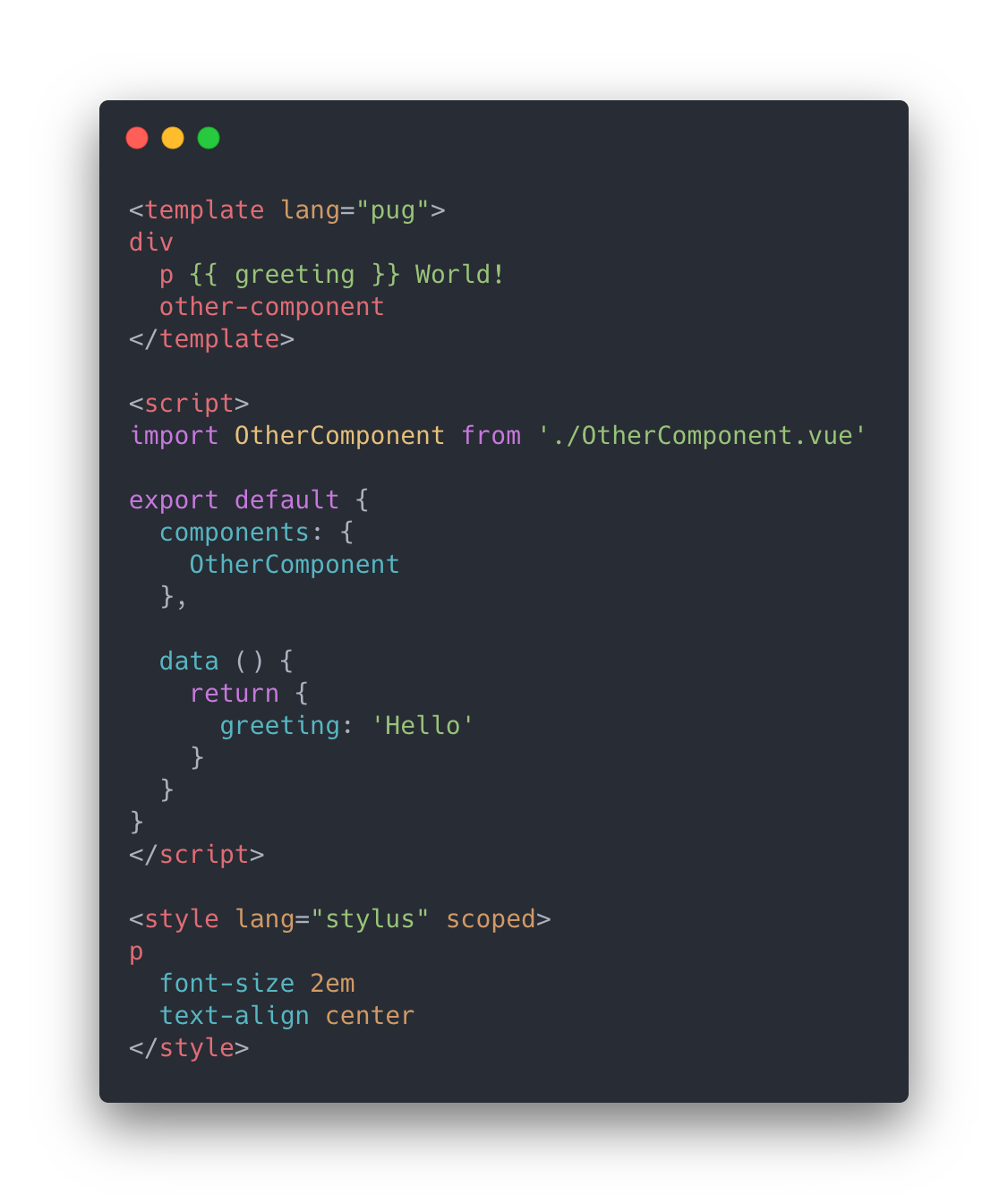
可能有的小伙伴喜欢将不同模块拆分开来,也就是vue文档说的关注点分离。那么没有关系,你可以拆开那些文档,将css和js拆开到另一个文件,之后引入进组件中。如下:
<!-- my-component.vue --> <template> <div>This will be pre-compiled</div> </template> <script src="./my-component.js"></script> <style src="./my-component.css"></style>
项目大致目录如下:
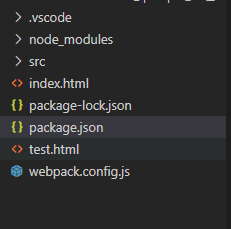
其中,index.html
<!DOCTYPE html>
<html lang="en">
<head>
<meta charset="utf-8" />
<title>Vue Simple Todo App with SFC</title>
<link
rel="stylesheet"
href="https://cdnjs.cloudflare.com/ajax/libs/normalize/8.0.1/normalize.min.css" rel="external nofollow" rel="external nofollow" rel="external nofollow" rel="external nofollow"
/>
<link rel="stylesheet" href="/dist/main.css" rel="external nofollow" rel="external nofollow" rel="external nofollow" rel="external nofollow" />
</head>
<body>
<div id="app"></div>
<script src="/dist/main.js"></script>
</body>
</html>
package.json
{
"private": true,
"scripts": {
"dev": "webpack-dev-server",
"build": "webpack --env.prod"
},
"dependencies": {
"vue": "^3.1.1"
},
"devDependencies": {
"@vue/compiler-sfc": "^3.1.1",
"css-loader": "^3.5.2",
"file-loader": "^6.0.0",
"mini-css-extract-plugin": "^0.9.0",
"stylus": "^0.54.7",
"stylus-loader": "^3.0.2",
"url-loader": "^4.1.0",
"vue-loader": "^16.0.0-alpha.3",
"vue-style-loader": "^4.1.2",
"webpack": "^4.42.1",
"webpack-cli": "^3.3.11",
"webpack-dev-server": "^3.10.3"
},
"keywords": ["todo", "vue"],
"name": "vue-todo-list-app-with-single-file-component",
"description": "A simple todo list application written in Vue with Single File Component (SFC) support."
}
webpack.config.js
const path = require("path");
const { VueLoaderPlugin } = require("vue-loader");
const MiniCssExtractPlugin = require("mini-css-extract-plugin");
module.exports = (env = {}) => ({
mode: env.prod ? "production" : "development",
devtool: env.prod ? "source-map" : "cheap-module-eval-source-map",
entry: [
env.prod ? false : require.resolve(`webpack-dev-server/client`),
path.resolve(__dirname, "./src/main.js")
].filter(Boolean),
output: {
path: path.resolve(__dirname, "./dist"),
publicPath: "/dist/"
},
resolve: {
alias: {
// this isn't technically needed, since the default `vue` entry for bundlers
// is a simple `export * from '@vue/runtime-dom`. However having this
// extra re-export somehow causes webpack to always invalidate the module
// on the first HMR update and causes the page to reload.
vue: "@vue/runtime-dom"
}
},
module: {
rules: [
{
test: /\.vue$/,
use: "vue-loader"
},
{
test: /\.png$/,
use: {
loader: "url-loader",
options: { limit: 8192 }
}
},
{
test: /\.css$/,
use: [
{
loader: MiniCssExtractPlugin.loader,
options: { hmr: !env.prod }
},
"css-loader"
]
},
{
test: /\.stylus$/,
use: ["vue-style-loader", "css-loader", "stylus-loader"]
},
{
test: /\.pug$/,
loader: "pug-plain-loader"
}
]
},
plugins: [
new VueLoaderPlugin(),
new MiniCssExtractPlugin({
filename: "[name].css"
})
],
devServer: {
inline: true,
hot: true,
stats: "minimal",
contentBase: __dirname,
overlay: true,
injectClient: false,
disableHostCheck: true
}
});
test.html
<!DOCTYPE html>
<html lang="en">
<head>
<meta charset="utf-8" />
<title>Vue Simple Todo App with SFC</title>
<link
rel="stylesheet"
href="https://cdnjs.cloudflare.com/ajax/libs/normalize/8.0.1/normalize.min.css" rel="external nofollow" rel="external nofollow" rel="external nofollow" rel="external nofollow"
/>
<link rel="stylesheet" href="/dist/main.css" rel="external nofollow" rel="external nofollow" rel="external nofollow" rel="external nofollow" />
</head>
<body>
<div id="app222">test pages</div>
<script src="/dist/main.js"></script>
</body>
</html>
src文件夹里边有三个文件,App.vue main.js 和TodoItem.vue
其中:App.vue
<template>
<div class="wrapper">
<h1>My Todo List</h1>
<form @submit.prevent="addTodo">
<input type="text" name="todo-text" v-model="newTodoText" placeholder="New todo">
</form>
<ul v-if="todos.length">
<TodoItem v-for="todo in todos" :key="todo.id" :todo="todo" @remove="removeTodo"/>
</ul>
<p class="none" v-else>Nothing left in the list. Add a new todo in the input above.</p>
</div>
</template>
<script>
import TodoItem from "./TodoItem.vue"
let nextTodoId = 1
const createTodo = text => ({
text,
id: nextTodoId++
})
export default {
components: {
TodoItem
},
data() {
return {
todos: [
createTodo("Learn Vue"),
createTodo("Learn about single-file components"),
createTodo("Fall in love ️")
],
newTodoText: ""
}
},
methods: {
addTodo() {
const trimmedText = this.newTodoText.trim()
if (trimmedText) {
this.todos.push(createTodo(trimmedText))
}
this.newTodoText = ""
},
removeTodo(item) {
this.todos = this.todos.filter(todo => todo !== item)
}
}
}
</script>
<style lang="stylus">
*, *::before, *::after
box-sizing border-box
html, body
font 16px/1.2 BlinkMacSystemFont, -apple-system, "Segoe UI", Roboto, Helvetica, Arial, sans-serif
padding 10px
.wrapper
width 75%
margin 0 auto
form
margin-bottom 20px
input[type="text"]
width 100%
padding 10px
border 1px solid #777
ul, li
margin 0
padding 0
p.none
color #888
font-size small
</style>
main.js
import { createApp } from 'vue'
import App from './App.vue'
createApp(App).mount('#app')
TodoItem.vue
<template>
<li>
<span>{{ todo.text }}</span>
<button @click.prevent="$emit('remove', todo)">Remove</button>
</li>
</template>
<script>
export default {
props: {
todo: {
required: true,
type: Object
}
}
}
</script>
<style lang="stylus" scoped>
li
display flex
margin 5px 0
span
flex 1
button
border 1px solid orange
background orange
color white
font-size 0.8rem
padding 2px 4px
cursor pointer
&:hover
border-color #ff8100
background #ff8100
</style>
注意
如果不懂得webpack,建议还是按照官网的指示,用vue的脚手架安装基本的工具。
或者是按照我给的pakage.json放到项目上,npm install一下,安装好最基本的环境,然后可以通过npm run dev进行本地开发。
其实,我觉得这个单文件组件用处已经比较小。除非就是一个纯js的项目,用的库和组件都已经非常的古老,那么这个时候用这个单文件组件来进行新的功能开发,效果还是不错的,前提是你要对vue比较熟悉。同时,我建议还是要学习一下webpack。不要对bable都一窍不通,然后还要通过node去启动项目。
其实,用一个文件就将html/css/JavaScript分层管理,统一到了一个文件,着实能够让我们的项目看起来更加的有条理,规范性更加好。因为我们的jq时代,常常会将css混杂在html中,而且,简单的一个点击事件都要将它们分割开,这体验当然没有“分层而治”那么分明。
参考文献:
1、https://v3.cn.vuejs.org/guide/single-file-component.html#%E5%9C%A8%E7%BA%BF%E6%BC%94%E7%A4%BA
2、https://www.cnblogs.com/houxianzhou/p/14510450.html
到此这篇关于vue单文件组件的实现的文章就介绍到这了,更多相关vue单文件组件内容请搜索NICE源码以前的文章或继续浏览下面的相关文章希望大家以后多多支持NICE源码!
